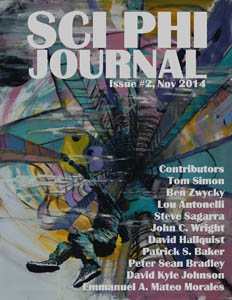Now the best relation to our spiritual home is to be near enough to love it. But the next best is to be far enough away not to hate it. It is the contention of these pages that while the best judge of Christianity is a Christian, the next best judge would be something more like a Confucian. The worst judge of all is the man now most ready with his judgements; the ill-educated Christian turning gradually into the ill-tempered agnostic, entangled in the end of a feud of which he never understood the beginning, blighted with a sort of hereditary boredom with he knows not what, and already weary of hearing what he has never heard. He does not judge Christianity calmly as a Confucian would; he does not judge it as he would judge Confucianism. He cannot by an effort of fancy set the Catholic Church thousands of miles away in strange skies of morning and judge it as impartially as a Chinese pagoda.
It is said that the great St. Francis Xavier, who very nearly succeeded in setting up the Church there as a tower overtopping all pagodas, failed partly because his followers were accused by their fellow missionaries of representing the Twelve Apostles with the garb or attributes of Chinamen. But it would be far better to see them as Chinamen, and judge them fairly as Chinamen, than to see them as featureless idols merely made to be battered by iconoclasts; or rather as cockshies to be pelted by empty-handed cockneys. It would be better to see the whole thing as a remote Asiatic cult; the mitres of its bishops as the towering head dresses of mysterious bonzes; its pastoral staffs as the sticks twisted like serpents carried in some Asiatic procession; to see the prayer book as fantastic as the prayer-wheel and the Cross as crooked as the Swastika.
Then at least we should not lose our temper as some of the sceptical critics seem to lose their temper, not to mention their wits. Their anti-clericalism has become an atmosphere, an atmosphere of negation and hostility from which they cannot escape. Compared with that, it would be better to see the whole thing as something belonging to another continent, or to another planet. It would be more philosophical to stare indifferently at bonzes than to be perpetually and pointlessly grumbling at bishops. It would be better to walk past a church as if it were a pagoda than to stand permanently in the porch, impotent either to go inside and help or to go outside and forget. For those in whom a mere reaction has thus become an obsession, I do seriously recommend the imaginative effort of conceiving the Twelve Apostles as Chinamen. In other words, I recommend these critics to try to do as much justice to Christian saints as if they were Pagan sages.
—G. K. Chesterton, The Everlasting Man
(Paragraph breaks added for convenience in online reading. —T.S.)









Recent Comments